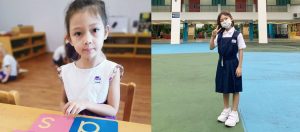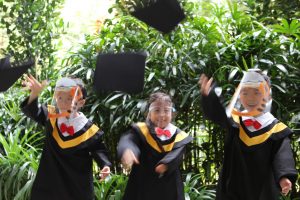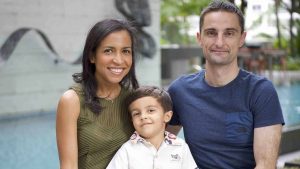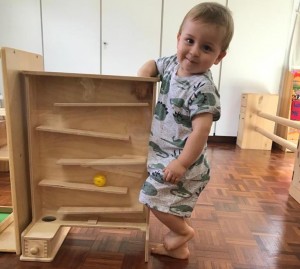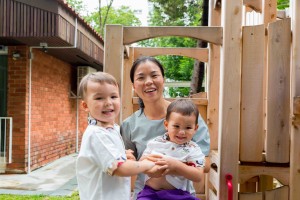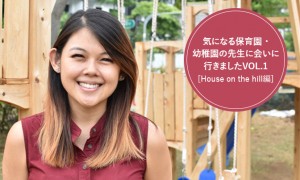Last year, our CEO and co-founder Ms. Jing Wu, sat down to have a chat with HoneyKids on the benefits of the Montessori method and why she believes in it. Here’s the full interview. Thank you HoneyKids! 4 Beautiful Locations Islandwide At House on the Hill, we strive to embody the true Montessori method and philosophy in every lesson and activity. Book A Tour Step inside any campus of family-run Montessori pre-school House on the Hill and you’ll be greeted by warm, friendly smiles and bright, uncluttered surroundings thoughtfully designed to encourage learning. It’s the type of place that would have made Dr Maria Montessori, the founder of the Montessori approach, proud. Which is exactly what it is – a school with a true Montessori curriculum that prides itself on having built nurturing, cosy, stimulating learning spaces for children to develop all their unique potential in the best possible way. And the best part? It’s got three super convenient central locations in Mount Sophia, Balmoral, and Pasir Panjang which makes it easier for little ones to benefit from the brilliant House on the Hill experience. All three schools share in common an emphasis on heritage and respect for nature, with large open spaces perfect for children to explore, discover and learn. But don’t just take it from us. When it comes to learning about a school, it’s always best to get the opinions from the people who know it best – the people who work there! HoneyKids recently had a chat with Jing Wu, co-founder and CEO of House on the Hill, to get the lowdown on the benefits of the Montessori method and why she believes in it. Please tell us about yourself. Where are you from and what would your students be surprised to know about you? I am originally from China, and together with my German husband, we have been living in Singapore for over 10 years where we are raising our multinational children (who attend House on the Hill!). Starting House on the Hill was, and still is, my biggest dream come true. Children might be surprised to know I would one day like to live in a small wooden house in a big forest! What’s your philosophy towards education? I started House on the Hill to nurture young minds in a warm, stimulating and fun environment. At House on the Hill, we respect each individual child and believe they should learn at their own pace. We encourage children’s natural desire for learning and independence. How is your school different from other schools in Singapore? We are a pure Montessori school. There are many schools in Singapore with ‘Montessori’ in the name, but we are unique in our pure practice and environment. Everything from the special learning materials to our mixed-age classrooms comes from Dr Maria Montessori’s research and pedagogy. We strongly believe in the Montessori Method and the way it nurtures each child’s development, and we educate parents about how and why we practise Montessori, too. We’ve also recently opened our NIDO at Balmoral – our Montessori for Infant program. As leaders in Montessori in Singapore we set about to create an infant program steeped in Montessori principles, ready to guide parents and work with children to create a Montessori foundation from the start. Can you tell us about the teaching approach at House on the Hill? Some key pillars of Montessori include each child receiving one-to-one instruction at their own pace, mixed-age classrooms that facilitate peer-to-peer learning, a classroom environment that encourages choice and movement, and specially designed materials that allow children to learn through hands-on experience. Our Mandarin program is engaging and effective – it’s taught through immersive songs, play, crafts and more. In every class, we aim to develop independence, confidence and social skills in our children. How do you think students can benefit from a true Montessori education? In a true Montessori environment, children build foundational academic, social and emotional skills that will stay with them for life. The individualised approach allows children to progress without pressure or competition. They feed their natural curiosity and learn to love learning! The materials help children grasp abstract concepts in a tangible way, leading to stronger foundations in language and mathematics. In mixed-age classrooms, children practise empathy, leadership, patience and cooperation – skills necessary to participate in a harmonious society. They will develop a solid foundation for their future with problem-solving skills, concentration, independence and confidence. Tell us about your school’s community: who are the people who love sending their kids to school there? What do parents tell you they value about the school? Parents who join House on the Hill are eager to see their children learn practical life skills (like washing their own bowls and serving their own snacks) alongside subjects like mathematics and phonics. Mostly, though, our parents tell us how much they love our teachers, who become like family to the children. Our nurturing and happy environment is invaluable to parents. What do you think are the greatest challenges young people face today? And the greatest opportunities you feel are open to them? One challenge is pressure for academic achievement from their families, peers and themselves. At House on the Hill, we encourage growth and learning without stress and intensity. Children develop a strong academic foundation from the Montessori environment, alongside developing self-esteem and emotional skills that will help them lead balanced lives. As for their opportunities, they are endless! We cannot know what the future will look like for our children, so we prepare them with well-rounded skills that will help them adapt, create and be good people. Can you share any lessons you’ve learned about communicating and connecting with kids throughout your years in education? The greatest lessons come from Dr Maria Montessori. She taught us it all comes down to respecting each child for who they are and respecting them as a person (no matter how small!). Some ways to start include avoiding baby talk and,
